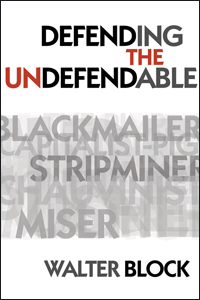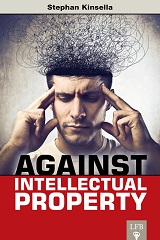Christopher Kullenberg går från klarhet till klarhet för tillfället och leverarar mängder av inspirerande texter och tankar. Den senaste texten handlar om Internet som en skog; social ontologi. Gråzonerna växer allt mer och blir tydligare och tydligare – digitala fenomen inspirerar det analoga och det analoga inspirerar det digitala – Allting känns så nytt och fenomen samt tänkandets riktadhet stöps om i allt fler dynamiska sammansättningar. Kan dessa tankar också ge upphov till nya fysiska sammansättningar?
Vad har vi för relationer till skogen idag? Jag växte upp i utkanten av ett skogsparti som jag ofta var ute och lekte i. Man är onekligen en del av en generation som både har varit ute och lekt och upptäckt saker i den analoga skogen (byggt kojor, krypit omkring, sett djur, uppskattat morgondaggen i solskenet, verkligen betraktat löven falla under alla årstider, grävt i jorden, uppskattat mossan som miniatyrskog och bara suttit stilla) och varit med från början och format samt använt den digitala skogen (meck med datorer, OS, programvara, hårdvara, softvara, spel, hemsidesnickeri, isärplockande av teknologi, experimenterande, knutit till sig kontakter, lärt sig enkla hack, hängt med i teknologisk utveckling etc).
Jag tänker ofta på både den analoga och den digitala skogen. Uppfattar jag Kullenberg rätt så kan vi som tänkare anamma vissa fenomen, företeelser, tankesätt, sammansättningar och ta dem till en helt annan miljö, ett helt annat område med helt andra sociala och teknologiska förutsättningar. Vad kan vi då lära oss av den analoga skogen? Vi utnyttjar den onekligen genom skövling, exploatering etc. – vi plockar isär dess sammansättning med mikrobiologiska mångfald och makrobiologiska omfattning – vi saknar kunskap om dess sammansättningar på ett annat plan än det strikt biologiska. Hur skapar vi sammansättningar hitom skogen?
Jag kom att tänka Wendell Berrys poesi när jag läste Christophers post om skogen. Berry skriver med en enorm klarhet och tycks verkligen älska språket. Ämnen som hans poesi berör är bland annat land, naturen, traditioner, livet och kultur. Man kan riktigt känna gemenskapen med jorden i poesin. Jag ville bidra med en analog dikt som på ytan handlar om att plantera träd. För är det inte så att det finns en möjlighet att vi kan inspireras av en dikt som rör skog och att detta kan flöda över till ett bevarande av den vildvuxna skog som Internets ändå är? Kanske kan den också säga oss någonting om vårt tänkande och reflekterande över det analog-digitala.
Planting trees av Wendell Berry
In the mating of trees,
the pollen grain entering invisible
the domed room of the winds, survives
the ghost of the old forest
that stood here when we came. The ground
invites it, and it will not be gone.
I become the familiar of that ghost
and its ally, carrying in a bucket
twenty trees smaller than weeds,
and I plant them along the way
of the departure of the ancient host.
I return to the ground its original music.
It will rise out of the horizon
of the grass, and over the heads
of the weeds, and it will rise over
the horizon of men’s heads. As I age
in the world it will rise and spread,
and be for this place horizon
and orison, the voice of the winds.
I have made myself a dream to dream
of its rising, that has gentled my nights.
Let me desire and wish well the life
these trees may live when I
no longer rise in the mornings
to be pleased by the green of them
shining, and their shadows on the ground,
and the sound of the wind in them.







































![[Most Recent Quotes from www.kitco.com]](https://i0.wp.com/www.kitconet.com/charts/metals/gold/t24_au_en_usoz_2.gif)
![[Most Recent Quotes from www.kitco.com]](https://i0.wp.com/www.kitconet.com/charts/metals/silver/t24_ag_en_usoz_2.gif)
![[Most Recent Quotes from www.kitco.com]](https://i0.wp.com/www.kitconet.com/charts/metals/platinum/t24_pt_en_usoz_2.gif)
![[Most Recent Quotes from www.kitco.com]](https://i0.wp.com/www.kitconet.com/charts/metals/palladium/t24_pd_en_usoz_2.gif)
![[Most Recent Quotes from www.kitco.com]](https://i0.wp.com/www.kitconet.com/charts/metals/base/copper-d.gif)
![[Most Recent Quotes from www.kitco.com]](https://i0.wp.com/www.kitconet.com/charts/metals/base/nickel-d.gif)
![[Most Recent Quotes from www.kitco.com]](https://i0.wp.com/www.kitconet.com/charts/metals/base/aluminum-d.gif)
![[Most Recent Quotes from www.kitco.com]](https://i0.wp.com/www.kitconet.com/charts/metals/base/zinc-d.gif)
![[Most Recent Quotes from www.kitco.com]](https://i0.wp.com/www.kitconet.com/charts/metals/base/lead-d.gif)


Senaste kommentarer